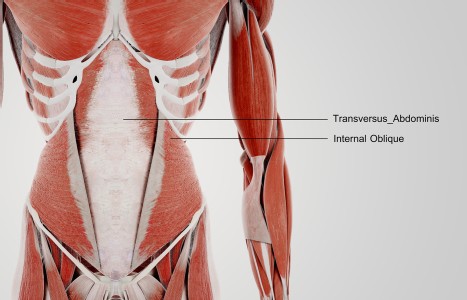TrA-2, my primary needle location, I needle 95% of the time and I think it works the best. You’ll know you have the right point location when you discover the muscle twitching when applying electric stimulation.
The Dance of Yin and Yang: Transgender Health, Part Two
Editor's note: The following is a continuance of a two-part series on transgender health, the first of which appeared in the May 2003 issue. This article was originally intended for publication in the July issue of Acupuncture Today, but was rescheduled to the August issue due to space restrictions. Readers are encouraged to read the first part of the series online at www.acupuncturetoday.com/archives2003/may/05portersommers.html.
All health care providers, including acupuncturists, should consider educating themselves about sex and gender issues to provide sensitive care to a population that can greatly benefit from our services. The Access to Health Care for Transgendered Persons in Greater Boston Study1 found that the lack of provider training on transgender issues creates insensitivity to simple issues of respect for transpeople. One example is an unwillingness to address transgender/transsexual people by the pronoun preferred by the patient/client. Another study completed in San Francisco in 2001 interviewed 200 male-to-female individuals and found that "participants in all of the focus groups highlighted the insensitivity of service providers as a major barrier to receiving ... health services."
Diego Sanchez, a postoperative female-to-male transsexual and director of the TransHealth and Education Development, comments, "These findings show that insensitive service, even when unintentional, can deter transgendered people from seeking any kind of health care service or intervention. So, in the interest of best serving clients of all types, it makes sense for acupuncturists to learn cultural competence, which can help people seek and stay in care of all types. Every year, I meet more and more transgendered and transsexual people, who consider and use holistic approaches to health care. The more providers are open to understanding patients they might see makes them better at what they do."
Asian medicine can provide a strong basis of support to the transgender client. Because societal pressures, fears and intolerance (called "transphobia") have severely limited the ability of many transgendered people to lead healthy lives, transgendered clients often present with psychosocial symptoms such as depression, anxiety and low self-esteem. We can offer pre- and postsurgical support for clients who choose surgical transitional options and help manage the side-effects of the pharmaceutical hormone treatments used during the transitioning process.
Clients transitioning from male-to-female (MTF) typically may be prescribed estrogen or anti-androgens. Estrogen (Premarin) side-effects may include thrombosis; hypertension; thyroid dysfunction; folate vitamin deficiencies; nausea and vomiting; weight gain; depression; hepatic impairment including tumors; breast cancer; impaired glucose tolerance; migraine and other headaches; edema; emotional lability; and gallbladder tumors. Anti-androgen (Aldactone) side-effects may include diuresis; nausea and vomiting; acidosis; rash; gastritis; hypotension; breast cancer; cramping; diarrhea; headache; and confusion.
Clients transitioning from female-to-male (FTM) often take testosterone and may experience side-effects that include hypertension; weight gain; liver function abnormalities; lipid abnormalities; fluid retention; loss of menses; polycystic ovarian disease; change in blood pressure; emotional lability; acne; and liver tumors.2
There are many things a provider can do to offer more gender-sensitive care. Diego Sanchez offers the following suggestions that are easy to implement, and work to establish the comfort and trust that keeps people in care. After all, that's the goal: serving people so that they will build and maintain health.
- If you celebrate diversity and have a policy about serving everyone with respect, let that policy be posted in a welcoming and proud way.
- Make registration/intake forms inclusive. List sex with a blank space, or include male, female, transgender and other.
- Let forms include an area for a "preferred name." People may wish to be called something different from their current identity status. Invite them to disclose that name to you before you address them.
- Ask about any special physical considerations the client may wish to discuss. This way, preoperative MTF clients who "tuck" their genitals or FTM clients who "bind" their chests can talk with the provider in a safe, respectful way. Postoperative clients also may have special items to mention, including tissue that is still healing, insensitive or painful to the touch. Pausing to ask and listen encourages ongoing care and a beneficial experience for both provider and client.
- TransHealth (617-457-8150, ext. 345 or transhealth@jri.org) is available to offer technical assistance over the phone, helping providers prepare a welcoming environment and establish cultural competence for when they serve transgendered patients.
As healers trained in a philosophy of dualities, we have the ability to understand the fluidity of nature at a profound level. By translating this level of understanding to all aspects of our treatment, we can offer all patients including the transgendered, the type of sensitivity and high level of care they deserve.
Web and Other Resources
- www.sexuality.org
- www.savina.com/confluence/hormone
- www.gender.org
- www.glbthealth.org
- Lombardi E. Enhancing transgender health care. American Journal of Public Health 2001;91:869-872.
References
- John Snow, Inc. Research & Training Institute and Justice Resource Institute's GLBT Health Access Project. July 2000. Available at www.jri.org/jrihealth.html.
- The Harry Benjamin International Gender Dysphoria Association's Standards of Care for Gender Identity Disorders, 6th edition, 2001.


